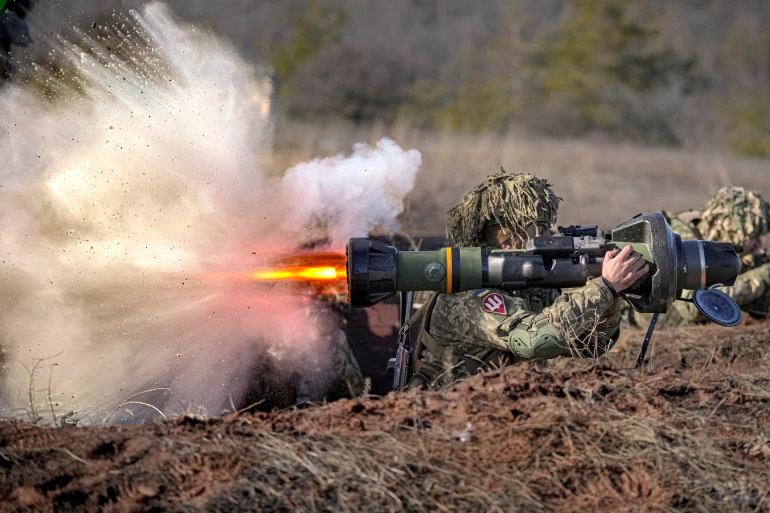
How Russia Has Weathered the Ukraine War
Despite the international sanctions imposed on it, Russia has remained undeterred. Those sanctions target the vital sectors of its economy, including oil and gas. They also target its financial system. Analysts say that sanctions will not deter Russian President Vladimir Putin from his goals in Ukraine. He plans to annex the Donbas region of eastern Ukraine and create a land bridge to Crimea. He also wants to occupy Kyiv and to remove the pro-Western government from power.
Russia’s influence on the Russian population
The Russian military is exerting great influence over its population in Ukraine. Its aggression has resulted in a large humanitarian response, but the war has also brought about a large number of documented violations of international humanitarian law. Russian forces have targeted civilian areas, killed unarmed civilians, and raped women. They have also claimed to have deported 1.9 million Ukrainian civilians, including 307,000 children. These war crimes will be felt long after the war is over.
In a survey conducted in February and June of this year, Russians’ attitudes toward Ukraine war events were assessed. While two-thirds of respondents said that they were following the conflict closely in March, this number fell to 56 percent by June. The proportion of respondents who rated recent Ukraine events as memorable dropped by half, from 75 percent in March to 38 percent in June. Polling data suggests that the Russian population was beginning to recover from the shock of the start of the conflict and had become used to it.
The Ukraine war has brought about a great deal of tension between Russia and Ukraine war . The Ukrainian government, under pressure from Moscow, decided to abandon plans for a closer economic relationship with the EU. The Russian government also pressed Ukraine to join the EAEU, which many Ukraine citizens viewed as betraying their national interest. The result was a popular protest called Euromaidan that turned into a nation-wide revolution.
The Russian public’s interest in the war has fallen and Russian citizens want to get back to normal life. Despite these facts, a CNN poll conducted by the British agency Savanta ComRes reveals that half of Russian respondents felt that Moscow should use military force to prevent Kyiv from joining the NATO. Furthermore, two-thirds of Russians surveyed agreed that the Russians and the Ukrainians are one nation.
The Russian leadership is still preparing for the 2024 presidential election, which will take place amid an increasingly authoritarian system. There are likely to be repressive laws and show trials, as well as greater pressure on dissenters. These measures are likely to anger average Russians and alienate the elite.
Its dependence on fossil fuels
The Ukraine war has highlighted the dependency of Russia on fossil fuels. The West, which is already highly dependent on Russian oil and gas exports, has responded with sanctions and other measures to ensure that Russia does not become dependent on its own resources. In turn, this has created problems for the Russian economy.
While the war in Ukraine is not directly related to climate change, the conflict has implications for the entire world. The war has caused a major shift in the way Western countries think about fossil fuels. Many Western countries have slashed their fossil fuel purchases in response to the conflict in Ukraine. They have also made plans to diversify their energy sources and have sought alternative sources of oil and gas.
The war in Ukraine has achieved the opposite of Putin’s desired result. It has escalated the loss of energy and mineral markets in Europe and amplified systemic processes that will eviscerate Russia’s fossil fuel economy over the next decades. In addition, further conflicts in former Soviet states with oil-related links could arise in the coming years. This could further fuel regional militarism.
Despite the economic costs, Russia’s dependence on fossil fuels has kept it from succumbing to Western sanctions. It also has massive untapped fossil resources in Ukraine, which could eventually threaten its petro-dominance in Europe. Ukraine’s natural gas reserves are second only to Norway’s, and could ultimately supplant Russia in the European market.
Russia has the world’s largest proven natural gas reserves. The vast amounts of natural gas have made Russia the leading exporter of this fossil fuel. The country is second in the production of natural gas in the world, and its gas production accounts for 17 percent of global output. However, the wealth comes with a price. Russia’s dependence on fossil fuels makes it the fourth-highest contributor of greenhouse gases.
Its ability to find alternative sources of spare parts
While Russia is still holding Ukraine’s territory, its military has had to adapt to a different environment. After failing to win the war quickly via coup d’état in Kyiv, the Russians are now relying on air and artillery bombardment to avoid further losses of their infantry and armored forces. While Russia has had success in starving cities into submission in Syria, it is now faced with a completely different environment in Ukraine.
If Russia continues to fight Ukraine, it will face manpower and morale challenges that are daunting. Nevertheless, if it annexes more of the country and applies enough punishment to Kyiv, it can declare victory. Then, a negotiated settlement would take into account the economic and military realities in each country. It is unlikely, therefore, to justify the cost of continuing the conflict.
If Russia was to continue the war, its logistical infrastructure would not be able to support it fully. Its soldiers have complained about the lack of material support, and some have even looted stores for food and other necessities. Without adequate supplies, no new offensive will succeed. Moreover, if sufficient munitions do not reach the front, Russia’s plans to shell the cities of Ukraine will be doomed.
Another way Russia has weathered the Ukraine war is by finding alternative sources of spare parts for its military. While Russia has a limited military budget, it has a strong defense industry. The government is dependent on these companies to provide the necessary spare parts. These companies have the knowledge and the capability to find alternative sources of spare parts.
Although Russia has been able to source alternative sources of spare parts for its military, its ability to obtain them from Western suppliers will likely be challenged in the future. The lack of critical technologies will hamper the Russian industry in the fall. When parts are not available, companies cannot maintain the equipment. This will lead to production delays. Analysts believe that even everyday goods will be affected. They say that this lack of spare parts could cause shortages of daily goods.
The Russian military is facing further losses in the war. It has lost over 500 prisoners of war and is likely to lose many more before the war ends. The military also has to contend with illnesses and cold weather. There are also accidents, which are common in a battlefield. It is estimated that over 900 Russian soldiers have died in the Ukraine war beyond the estimated 10,000 combat deaths.
Its efforts to subjugate parts of Ukraine outside its sphere of influence
It is now clear that Putin’s goal in Ukraine is to overthrow the Kyiv government and install a friendly regime in its place. This regime would be neutral and demilitarized and would negotiate new security arrangements with NATO. These agreements could include steps to turn Ukraine into a vassal state. But Putin’s strategy to topple the Kyiv government is unlikely to succeed, mainly because of the vigor of the Western response.
Russia’s efforts to subjugate parts in Ukraine outside its sphere of influence have come at a high cost, risking both its domestic stability and its place in the world power system. Ukraine will not be a friendly client-state in the near future, and this could undermine Russia’s long-term viability.
Putin has deceived outsiders about his true intentions for the war in Ukraine. He claimed to be defending separatist regions in eastern Ukraine when, in reality, he ordered an all-out attack on the entire country. He has also declared his intentions to “denazify” and “demilitarize” Ukraine. He’s even declared that he’ll eventually install a puppet regime in Ukraine.
Russia’s aims to subjugate parts of Ukraine outside its influence have been long-standing. Soviet government archives have opened up, allowing historians to document Russian attempts to suppress the Ukrainian people. The 1932-33 Ukrainian Famine, or Holodomor, was a deliberate effort by the Soviet authorities to make the Ukraine people submit to Soviet rule. They knew that starvation would kill millions of Ukrainians.
Nonetheless, while the prospects of Russian military intervention are dwindling, the Ukrainian military standoff will remain intense. Ultimately, Putin cannot stop trying to subjugate parts of Ukraine outside of its sphere of influence. And there’s no guarantee that the war will end peacefully.
The war in Ukraine has exposed Russia’s persistent military weaknesses. It was an embarrassing debacle for Russian President Vladimir Putin. It has also shown that Russia is not strong enough to rebuild its empire. As Europe prepares to rearm and rebuild its own defenses, Russia’s military capabilities will diminish even further.










